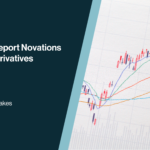
Novation is widely used in derivatives markets to manage counterparty risk, optimise portfolios, and ensure regulatory compliance. However, from a regulatory reporting perspective, novation introduces specific complexities.
Regulatory frameworks such as EMIR (European Market Infrastructure Regulation) and MiFID II (Markets in Financial Instruments Directive II) require firms to report novations with particular attention to certain fields. This following section provides a detailed overview of the fields impacted during novation reporting and the key regulatory expectations .

Key Fields Impacted by Novation Under EMIR
When a novation occurs, EMIR considers it a termination of the existing contract and the creation of a new contract. Therefore, both the terminated trade and the new trade resulting from the novation must be reported separately. The critical fields impacted include:
1. Action Type
-
-
-
-
- EMIR requires firms to report the novation using the appropriate Action Type code. Typically, the termination of the original trade is reported with the action type “C” (cancel), while the newly novated trade is reported with “N” (new).
- It is crucial to ensure that the trade identifiers match for both actions to establish the link between the cancelled and new trades.
-
-
-
2. Trade ID / Unique Trade Identifier (UTI)
-
-
-
-
- Since the novation creates a new contract, a new UTI must be generated for the novated trade. The original UTI of the cancelled trade must be referenced in the report to maintain traceability.
- Both counterparties must agree on the UTI for accurate reporting.
-
-
-
3. Counterparty Details
-
-
-
-
- One of the fundamental aspects of novation is the change in counterparty.
- The LEI (Legal Entity Identifier) of the original counterparty is replaced by that of the new counterparty in the novated trade report. This ensures that regulators can track the change in risk exposure.
-
-
-
4. Execution Timestamp
-
-
-
-
- The execution timestamp of the novated trade reflects the time at which the novation agreement was finalised between the parties.
- This field is critical for regulators to understand when the new risk position was assumed.
-
-
-
5. Action Timestamp
-
-
-
-
- The action timestamp reflects when the reporting party submitted the novation report. Accurate reporting of this field ensures compliance with EMIR’s timeliness requirements.
-
-
-
6. Effective Date
-
-
-
-
- The effective date of the novated trade indicates when the obligations of the new contract commence.
- It is often identical to the execution date but may differ in certain bespoke novations where the agreement is executed in advance.
-
-
-
7. Contractual Details
-
-
-
-
- Key contractual details such as notional amount, currency, and underlying asset should remain unchanged unless the novation includes modifications beyond the counterparty.
- Any change to these fields must be reflected accurately in the new trade report.
-
-
-
Key Fields Impacted by Novation Under MiFID II
MiFID II reporting obligations apply when the novating party is an investment firm executing the novation on behalf of a client or its own account. The following fields are particularly important:
1. Trading Capacity
-
-
-
-
- Firms must report the trading capacity of the new counterparty—whether they are acting as a principal or an agent in the transaction.
- Any change in the trading capacity due to novation must be reflected accordingly.
-
-
-
2. Venue of Execution
-
-
-
-
- If the original contract was executed on a trading venue, the novated trade must also indicate the relevant MIC code (Market Identifier Code) of the venue where the new trade was executed or cleared.
-
-
-
3. Instrument Identification
-
-
-
-
- The ISIN (International Securities Identification Number) or UPI (Unique Product Identifier) of the derivative must be reported without modification unless the novation involves a change in the underlying terms of the contract.
- This ensures that regulators can link the new and old trades accurately.
-
-
-
4. Notional Value and Currency
-
-
-
-
- MiFID II requires firms to report the notional value and currency of the novated trade. Any changes in the notional amount resulting from partial novations must be reflected precisely.
- Partial novations, where only a portion of the contract is transferred to the new counterparty, can complicate reporting. Both the remaining and novated portions need to be reported separately.
-
-
-
Challenges in Novation Reporting
Despite the structured frameworks under EMIR and MiFID II, novation reporting poses several challenges for firms:
- UTI Agreement: Both the original and new counterparties must agree on the UTI for the novated trade. Discrepancies in UTI generation can result in mismatches and regulatory breaches.
- Timeliness: Regulatory timelines for reporting are strict. Delays in obtaining the necessary data or counterparty consent can lead to late submissions, exposing firms to penalties.
- Data Integrity: Accurate reporting of all impacted fields requires seamless data flow across internal systems and coordination with external counterparties. Errors in any field can trigger reporting discrepancies.
- Partial Novations: Reporting partial novations is complex, as it involves splitting the notional value and ensuring both the remaining and novated trades are accurately reported.
- Cross-Jurisdictional Complexity: Firms operating across multiple jurisdictions must comply with varying novation reporting requirements under EMIR, MiFID II, and other regional frameworks.
How Novatus Global Can Help
Navigating the intricacies of novation reporting under EMIR and MiFID II requires deep expertise and robust technology. Novatus Global offers comprehensive regulatory support, helping firms manage their novation processes seamlessly. Our solutions include:
- Automated UTI Generation and Reconciliation: Ensures accurate and consistent reporting of novated trades.
- Regulatory Timeliness Monitoring: Tracks submission timelines and alerts firms to potential delays.
- Data Integrity Tools: Validates key fields for novation reports, ensuring accuracy and completeness.
- Cross-Jurisdictional Compliance: Provides tailored solutions for firms operating in multiple regulatory environments.
By partnering with Novatus Global, firms can streamline their novation reporting, reduce operational risk, and maintain full compliance with regulatory requirements. Contact us today to learn how we can assist your organisation.











